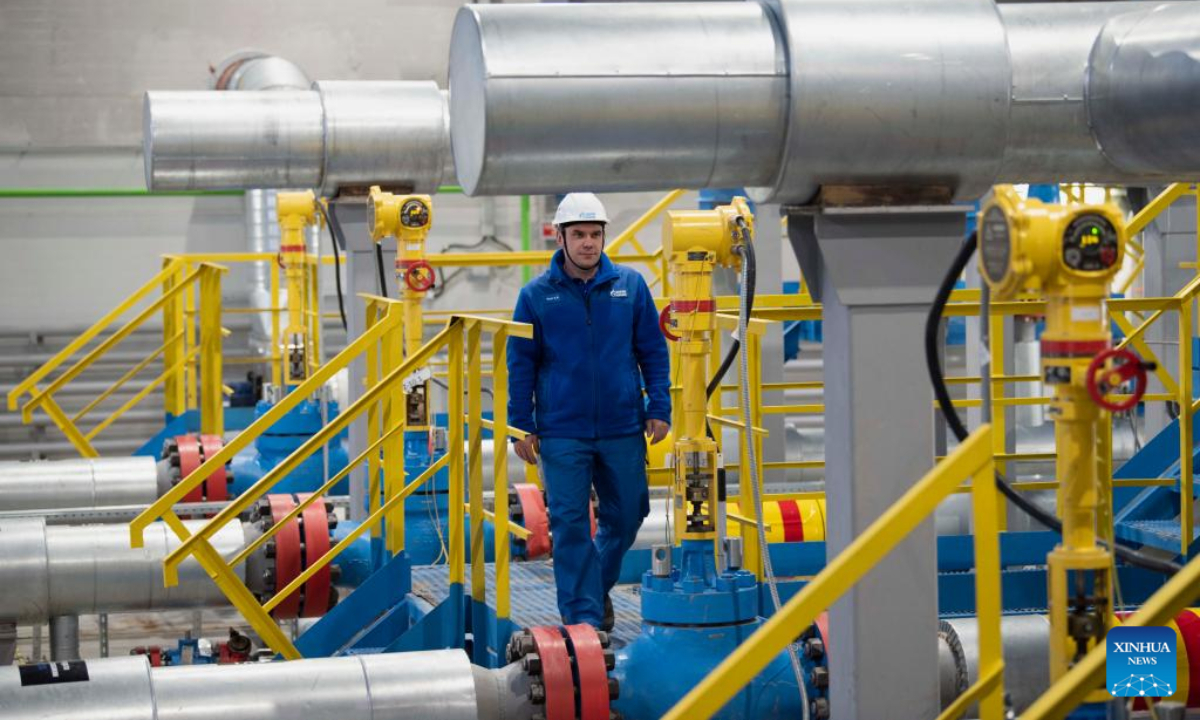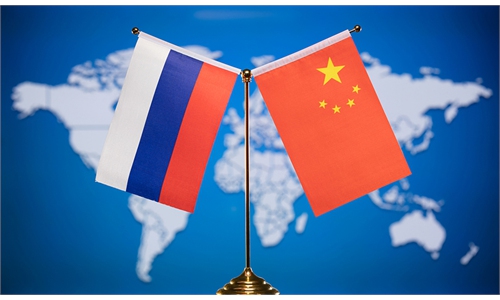Putin signs law ratifying gas supplies to China through Far Eastern route; energy tie 'set to be closer'

A staff member patrols to check equipment at Kovykta gas condensate field in Irkutsk, Russia, December 18, 2022. Photo:Xinhua
Russian President Vladimir Putin on Tuesday signed a law ratifying an intergovernmental agreement with China on cooperation in the field of natural gas, allowing supplies to be exported from Russia to China via the Far East route, TASS reported.
Official implementation of the agreement is no doubt beneficial for both Russia and China, and will lead to strengthened, stable energy ties between the two nations amid uncertainties, observers said.
The ratification comes after a cooperation deal was signed on January 31, 2023, and defines the terms of cooperation for the supply of gas from Russia to China via the Far Eastern route, including the cross-border section of the gas pipeline across the Ussuri River near the cities of Dalnerechensk in Russia, and Hulin, Northeast China's Heilongjiang Province.
The document also regulates civil law, tax and customs issues and defines a mechanism for resolving disputes if they arise, TASS said.
The design, construction and operation of the site in Russia is controlled by Gazprom, and on the Chinese side by China National Petroleum Corporation (CNPC).
The agreement fully meets the interests of both China and Russia, and thus the two sides will become closer in energy cooperation, Wang Yongzhong, director of the Institute of Energy Economy at the Chinese Academy of Social Sciences, told the Global Times on Tuesday.
"More gas imports from Russia, which is a stable supplier, will promote energy security in China. Meanwhile, gas transported through pipelines will be more cost-effective than liquefied natural gas," said Wang.
On February 4, 2022, Russia's state-owned energy giant Gazprom announced it had signed a long-term agreement with CNPC to supply natural gas to China via the Far Eastern Pipeline.
"As soon as the project reaches its full capacity, the amount of Russian pipeline gas supplies to China will grow by 10 billion cubic meters, totaling 48 billion cubic meters per year (including deliveries via the Power of Siberia gas pipeline)," according to a statement on Gazprom's official website.
Last year marked significant steps for China-Russia energy cooperation, with energy accounting for 43 percent of total trade. According to Chinese Customs data, Russia exported 86.25 million tons of oil, 15.5 billion cubic meters of piped natural gas, 6.5 million tons of liquefied natural gas and 64.07 million tons of coal to China in 2022, all setting new records.
The gas pipeline project through the Far Eastern pipeline is new major energy cooperation between Russia and China. In 2014, Gazprom signed a contract with CNPC on gas supply via the China-Russia east-route pipeline, which agreed on a total gas supply of more than one trillion cubic meters, with an annual supply of 38 billion cubic meters lasting a period of 30 years.
The China-Russia eastern natural gas pipeline has raised its daily gas transmission capacity to 61 million cubic meters since its operation began three years ago, and the annual gas transmission volume is expected to exceed 22 billion cubic meters in 2023, China Media Group reported earlier.
Bilateral trade between China and Russia stood at $73.15 billion in the first four months of 2023, surging 41.3 percent year-on-year, according to data unveiled by the General Administration of Customs.
When Russian Prime Minister Mikhail Mishustin attended a high-level business forum in Shanghai in late May, he said that bilateral trade between China and Russia could hit the $200 billion goal this year and cooperation will expand beyond traditional areas.
Global Times


